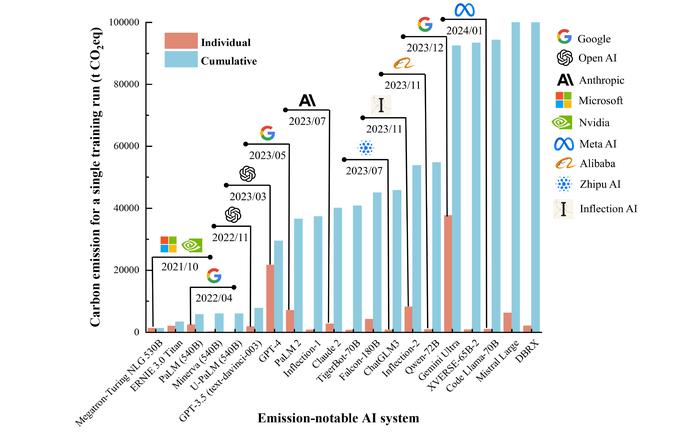
When you use an AI model for a task, do you ever think about how much energy the model uses?
Many of us don’t, but the reality is that AI adoption and usage has led to a huge surge in computing power demand.
A new study by researchers at Zhejiang and Nankai Universities involved analyzing the emissions of 79 popular AI models released between 2020 and 2024.
They found that the top 20 AI systems with the highest emissions could have a combined yearly carbon footprint of as much as 102.6 million tons of CO₂.

One concerning finding is that the amount of CO₂ that AI models emit increases as their systems improve (such as when a new version is released). OpenAI’s GPT-4’s carbon footprint was twelve times that of GPT-3, showing a trend of each new model demanding more energy. This growing environmental impact of AI is prompting calls for regulatory measures and emissions caps.
So, what makes AI so energy-hungry? According to the study, while training AI models is energy-intensive, it isn’t the training that’s causing the environmental cost. Rather, it’s keeping the AI models running – requiring almost 960 times the energy of a single training session. So, as more people use these AI models, the environmental cost climbs even higher.
Dr. Meng Zhang, lead researcher from Zhejiang University, commented: “The exponential growth in AI capabilities mirrors a concerning rise in its environmental impact. This study underscores the urgent need for the AI industry to adopt greener practices and sustainable standards. Our goal is to equip policymakers with the data needed to address AI’s carbon footprint through proactive regulations.”
But some companies are taking the lead in addressing AI’s environmental impact.
Microsoft wants to be carbon-negative by 2030, and Google is pushing for clean energy sources to power its AI operations – it recently explored small nuclear reactors for its data centers.
As AI technology advances, sustainable energy sources must power it. After all, what’s the point of technological advancement if the cost is a world burdened by climate change?
Citation
